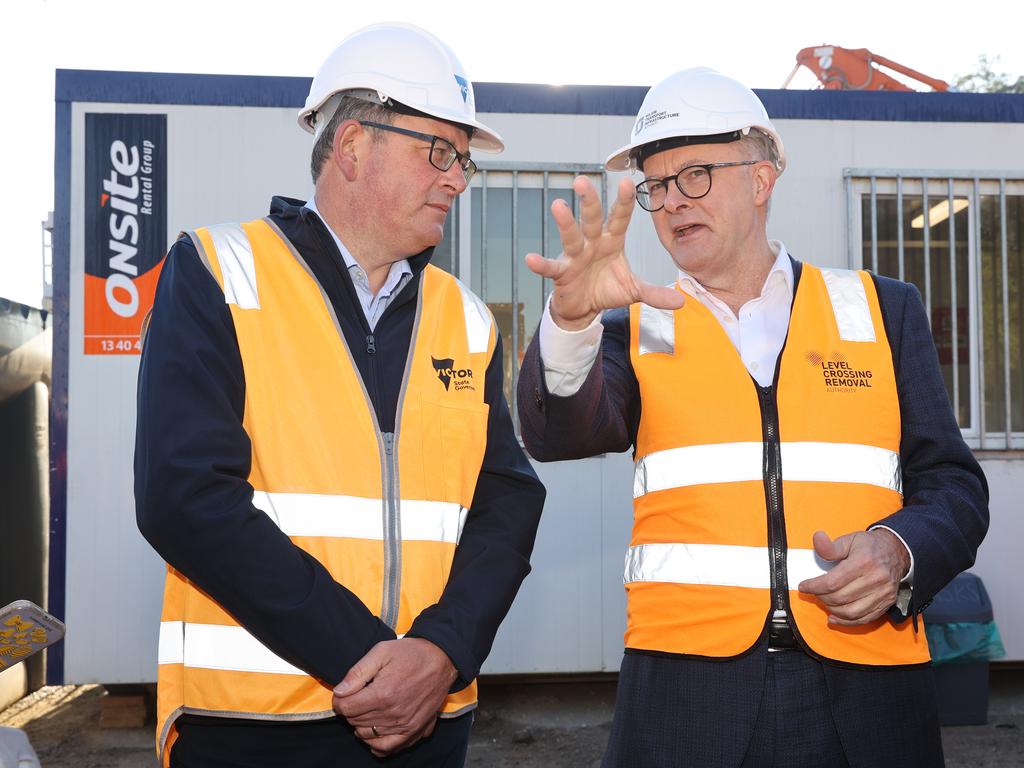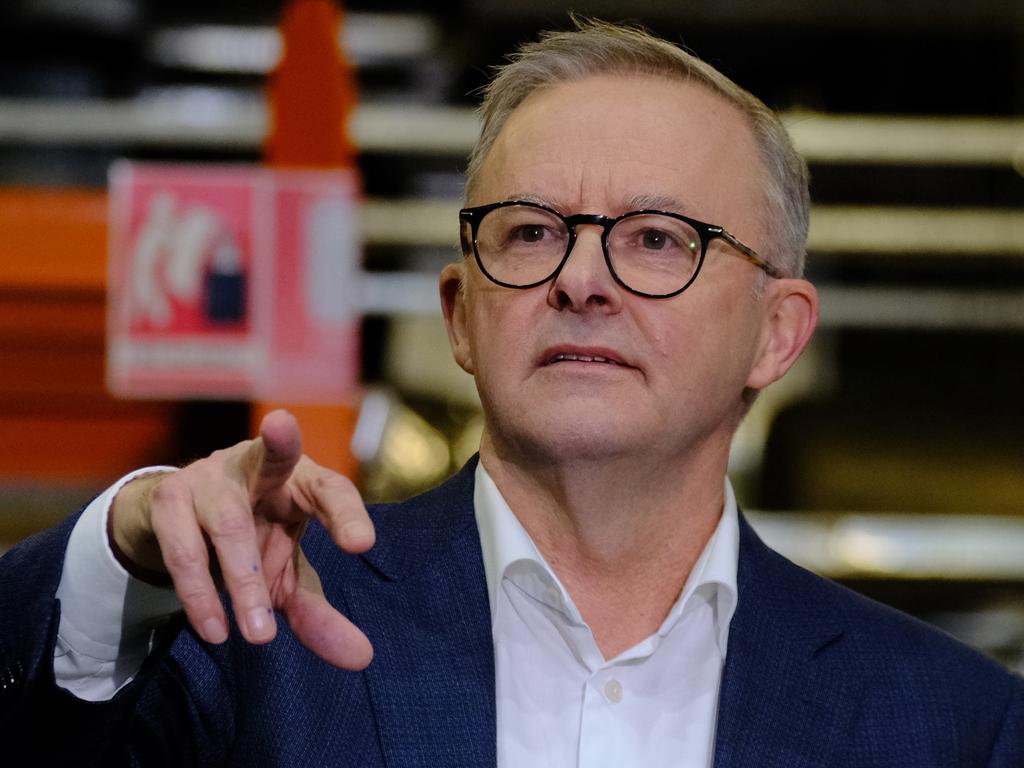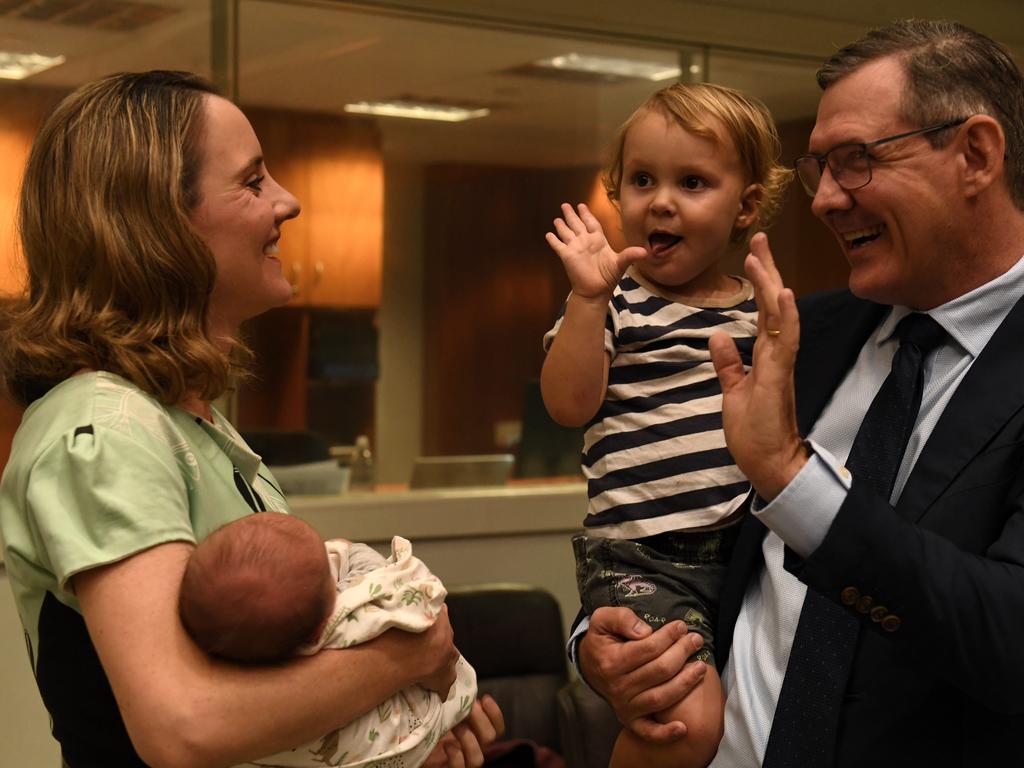Election 2022: ALP’s mixed messages for city and country voters
A pioneer of Labor’s digital strategy has revealed how the ALP runs parallel online campaigns targeting miners in rural areas and inner-city voters using social media algorithms.

A pioneer of Labor’s digital strategy has revealed how the ALP runs parallel online campaigns targeting miners in rural areas and inner-city voters using social media algorithms to slant the party’s election messages.
Marketing expert Tim Doyle, who was drafted by Labor to run a five-week $1m digital blitz during the 2016 election campaign, also revealed political parties have the power to “manipulate” news feeds of social media users to suppress votes in key electorates.
With the major parties deploying split social media advertising strategies in city and regional electorates, Mr Doyle said his work with Labor helped move “people’s opinions en masse in a way we’ve never really seen before from a targeted perspective”.
Labor’s 2016 social media strategy, headlined by “Mediscare”, was credited with helping Bill Shorten come close to defeating Malcolm Turnbull.
In a podcast with businessman Mark Bouris last year dubbed “the bloke who’s convinced you to click, buy, vote”, Mr Doyle said the rise of Donald Trump and Brexit in 2016 changed the way political campaigns were run.
“The Labor Party has historically found it very difficult to talk about climate change issues en masse because you have a large portion of the workforce work in industries where significant change on climate change will cost people jobs,” Mr Doyle said.
“In rural Queensland, you can’t campaign on the health of the reef, for example, because if you do that … it’s mining jobs that are at risk. What I realised was if you cut audiences in Melbourne, inner-city, young and female you can talk about the reef all you want because it’s never going to be seen by anyone in Queensland.
“You’re doing a really targeted spend, but you’re also not pissing people off. So you can campaign on progressive issues in the inner-city and you can campaign on jobs issues in rural Queensland, and you can have that message told in a really nuanced way.”
Mr Doyle, who shaped the digital strategy of Australian mattress company Koala and co-founded Eucalyptus, said “digital marketing and particularly the targeting available on Facebook has meant that you could have 100 different targeted issues out in the market and they cannot conflict with each other in any way”.
He also revealed parties could potentially use social media to suppress votes in key electorates.
“Say we want to stop people in the Queensland state election turning out to vote – so we wanted to suppress the vote. What we would do is we would make a page called electionnews.com,” he said.
“We would find an article about long lines to vote from last election. We would put it on Facebook, we would strip the dates out and we would make it look like in western Queensland there was going to be long lines to vote so people didn’t turn out.
“Not fake news – just manipulation of the news feed and super simple. People wouldn’t turn out to vote and you could shift a thousand votes, and a thousand votes in a lot of seats in Australia is enough.”
A Labor campaign spokesman on Tuesday said Mr Doyle “has never been an employee of the ALP and has had no involvement in any Labor campaign since 2016”. The spokesman would not say how much Labor was spending on digital ads or whether it was splitting messages across electorates. “Labor encourages every single Australian that is enrolled to vote to do so at this election because Australia can’t afford another three years of a do-nothing government with Scott Morrison at the helm,” the spokesman said.
Queensland LNP senator Matt Canavan said “new technology has been a major help to Labor MPs”. “These revelations prove that Labor’s position on people’s jobs is based on their GPS location,” Senator Canavan said.








To join the conversation, please log in. Don't have an account? Register
Join the conversation, you are commenting as Logout